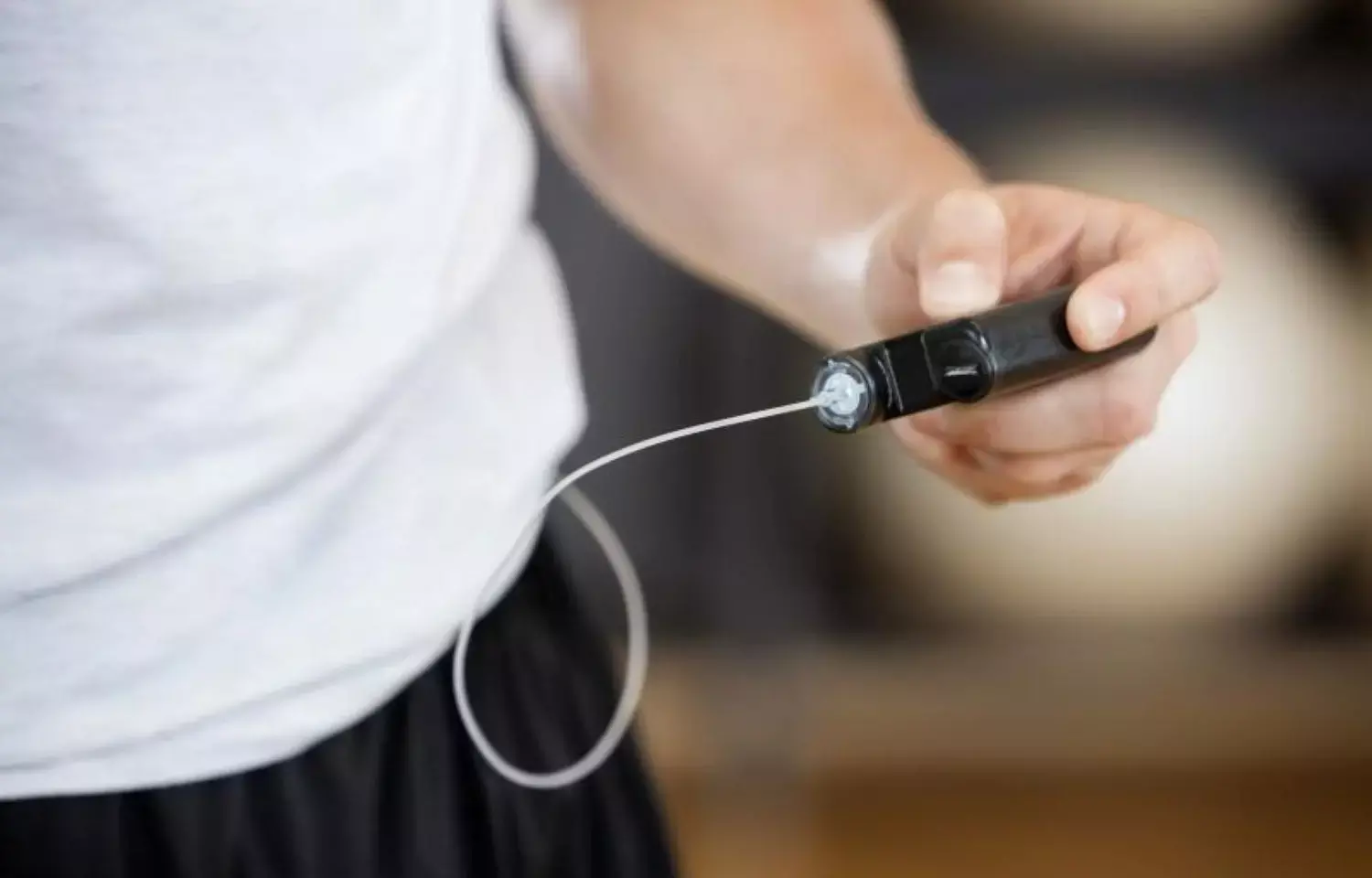- Home
- Medical news & Guidelines
- Anesthesiology
- Cardiology and CTVS
- Critical Care
- Dentistry
- Dermatology
- Diabetes and Endocrinology
- ENT
- Gastroenterology
- Medicine
- Nephrology
- Neurology
- Obstretics-Gynaecology
- Oncology
- Ophthalmology
- Orthopaedics
- Pediatrics-Neonatology
- Psychiatry
- Pulmonology
- Radiology
- Surgery
- Urology
- Laboratory Medicine
- Diet
- Nursing
- Paramedical
- Physiotherapy
- Health news
- Fact Check
- Bone Health Fact Check
- Brain Health Fact Check
- Cancer Related Fact Check
- Child Care Fact Check
- Dental and oral health fact check
- Diabetes and metabolic health fact check
- Diet and Nutrition Fact Check
- Eye and ENT Care Fact Check
- Fitness fact check
- Gut health fact check
- Heart health fact check
- Kidney health fact check
- Medical education fact check
- Men's health fact check
- Respiratory fact check
- Skin and hair care fact check
- Vaccine and Immunization fact check
- Women's health fact check
- AYUSH
- State News
- Andaman and Nicobar Islands
- Andhra Pradesh
- Arunachal Pradesh
- Assam
- Bihar
- Chandigarh
- Chattisgarh
- Dadra and Nagar Haveli
- Daman and Diu
- Delhi
- Goa
- Gujarat
- Haryana
- Himachal Pradesh
- Jammu & Kashmir
- Jharkhand
- Karnataka
- Kerala
- Ladakh
- Lakshadweep
- Madhya Pradesh
- Maharashtra
- Manipur
- Meghalaya
- Mizoram
- Nagaland
- Odisha
- Puducherry
- Punjab
- Rajasthan
- Sikkim
- Tamil Nadu
- Telangana
- Tripura
- Uttar Pradesh
- Uttrakhand
- West Bengal
- Medical Education
- Industry
Hybrid closed-loop system may reduce HbA1c in type 1 diabetes patients who often miss meal boluses: Study

USA: The use of a hybrid closed-loop automated insulin delivery system can reduce HbA1c and improve time in range without increasing time below range for type 1 diabetes patients who often miss meal boluses, according to a study. The study findings, presented at a meeting of the American Association of Clinical Endocrinology (AACE), were based on data from 30 adults who had type 1 diabetes for at least 2 years.
For insulin pump or automated insulin delivery therapy, generally, type 1 diabetes patients with a high HbA1c or those who are missing meal boluses frequently are not considered a good candidates. The study however suggests that an automated insulin delivery system can safely be started in such patients and may lead to improved outcomes.
For the study, the researchers analyzed the long-term outcomes with the use of the Tandem Control-IQ hybrid closed-loop automated insulin delivery system by 30 adults with type 1 diabetes.
The study included adults who had type 1 diabetes for at least 2 years, were missing meal boluses, and had used a continuous glucose monitor for at least 6 months prior to the study. Participants were randomly assigned to a high auto mode group with no user-initiated boluses, a group using auto mode 50% to 90% of the time with an intermediate number of user-initiated boluses, and a group using auto mode less than half of the time with a high number of user-initiated boluses. For every 3 months for 1 year, CGM and insulin delivery data were obtained. The efficacy was assessed using HbA1c and time in the range.
The findings of the study were as follows:
- All three groups had a baseline HbA1c of 9% or higher and baseline time in range of less than 50%. A significant reduction in HbA1c at 3, 6 and 12 months was observed for all three groups, and all groups had a mean HbA1c reduction of at least 1% at 12 months.
- Time in range significantly increased by at least 10% from baseline to 12 months in all three groups.
- All three groups had minimal changes in body weight and insulin dose from baseline to 12 months.
- Time below range decreased slightly for all three groups during the study to 2% at 12 months for the group using auto mode the least, 1.8% for the intermediate auto mode group, and 1.9% for the high auto mode group.
"Bolusing is an essential component of automated insulin delivery — that's why it's called a hybrid closed-loop system," Shah said. "However, we demonstrate in our study that Tandem Control-IQ may be used in certain patients with type 1 diabetes even without user-initiated boluses, such as a fully automated insulin delivery system. I am sure this may surprise many providers."
Future studies should examine the efficacy of automated insulin delivery systems in high-risk populations, including those with a high HbA1c, people with less frequent boluses and older adults with comorbidities, Shah said.
Reference:
Shah V, et al. Efficacy and Safety of Tandem Control IQ Without User-Initiated Boluses in Adults with Uncontrolled Type 1 Diabetes. Presented at: American Association of Clinical Endocrinology Annual Scientific and Clinical Conference; May 12-14, 2022; San Diego.
Dr Kamal Kant Kohli-MBBS, DTCD- a chest specialist with more than 30 years of practice and a flair for writing clinical articles, Dr Kamal Kant Kohli joined Medical Dialogues as a Chief Editor of Medical News. Besides writing articles, as an editor, he proofreads and verifies all the medical content published on Medical Dialogues including those coming from journals, studies,medical conferences,guidelines etc. Email: drkohli@medicaldialogues.in. Contact no. 011-43720751


